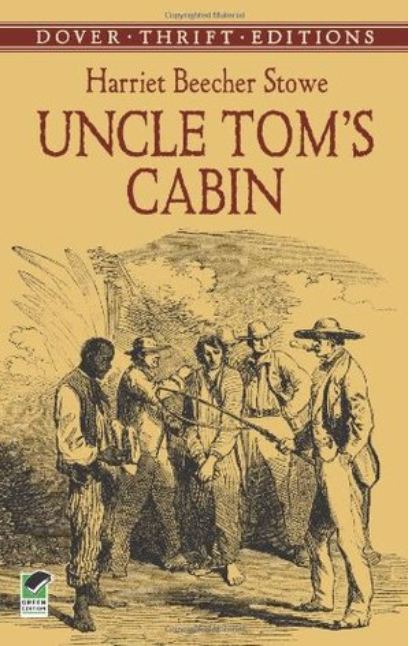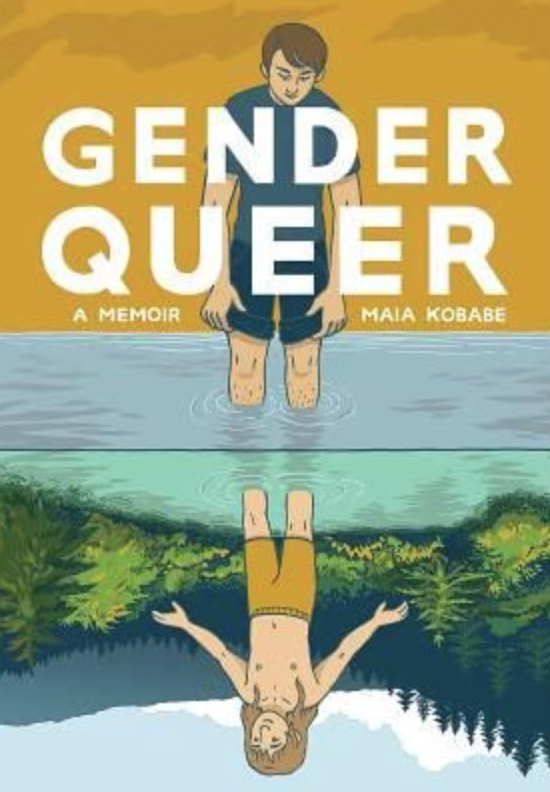A Ban on Books, a Ban on Freedom
Photo from Pexels by George Milton
Bella Gruber
Fredrick Douglass once said, “Once you learn to read, you will forever be free.” Yet, what if censorship of literature is taken too far? What if ideas that open up the public’s eyes to becoming more aware of unheard or pressing topics are silenced? That’s exactly what’s been happening throughout America for nearly two centuries.
How does a book become banned?
Books are “challenged,” meaning that the book is attempted to be banned by a group’s views/opinions on the content of the book. This is done usually in effort to protect an audience, commonly children, from what are considered harmful ideas from the group that challenges the book. The content of the book is considered harmful if it is directed towards a certain audience that may have difficulty being exposed to the ideas. The American Library Association (ALA) lists that 92.5% of books are banned for sexually explicit content, followed by offensive language and not being suitable for an age group. The institution in which the book is being challenged can either choose to ban it from the place in question or dismiss the challenge.
Censorship of books through the centuries
From the colonial era, expression of speech through the form of books has been criticized in relevance with the time period’s social ideas. As seen predominantly in the 1850s, southern states commonly forbade expressing anti-slavery ideas in text. Author Harriet Beecher Stowe defied this law with her abolitionist novel Uncle Tom’s Cabin, which was not only a bestseller at the time but also enraged southern slave owners; who burned the book and banned it to stay off of bookshelves. On the other end of the Civil War, the Union banned pro-slavery books that were more in favor of the south, such as Stonewall Jackson’s biography. The Comstock Act was passed in 1873, which made it illegal to possess or send obscene or immoral content. This was passed by Anthony Comstock, who aimed to “prevent crimes and corruption of children.” Women’s rights to their bodies and contraceptives were both taboo topics of the time, which led to feminist authors of the time being silenced for even briefly covering these unthinkable concepts in their books. While America has seen a rapid uptake in books being challenged and banned from institutions in recent decades, the idea of censoring literature is nothing new.
Photo courtesy of Goodreads
Government involvement in determining banned books
The vast majority of challenged books that are banned locally don’t have much effect past the community they take place in. Nonetheless, in a rare event, some cases make it to higher courts.
Island Tree School District v Pico:
In 1982, a local school board near Levittown, New York, found that books in the school libraries by Kurt Vonnegut and Richard Wright were “anti-Christian” and “anti-American.” Although specific books aren’t listed, Vonnegut’s Slaughterhouse Five, an anti-war novel has been banned in the past for its obscene language, sexual descriptions, and mentions of homosexuality. The same goes for Richard Wright, whose memoir Black Boy from 1945, has been banned frequently since 1972 for having an “obscene nature” and presenting a sense of hatred between races. The lawsuit by the students made the claim that their first amendment rights were being violated by this. When taken to court, it was ruled that the school board’s motive for banning these books was unclear; they questioned whether it was because of the admissible idea that they wanted to remove the sexual depictions and vulgar content, or if they simply wanted to suppress ideas. The lower courts decided that only a judgment was needed rather than a trial Justice Brennan represented the supreme court by saying that the discretion of school boards must be used in “a manner that comports with the transcendent imperatives of the First Amendment,” concluding that schools cannot remove books for reasons that are narrowly partisan or restrict political/social ideas specific to a particular party as it would be a suppression of speech by the first amendment.
ACLU Florida v. Miami-Dade County School Board
In 2006, the Miami-Dade County School Board challenged a series of children’s books that explains life in other countries, including “Vamos A Cuba'’ which was debated for its portrayal of life in Cuba’s communist state; It failed to represent the governmental oppression and poverty that was seen nationwide through Cuba. With this lack of representation, school board committees challenged the book because they believed it to be inappropriate for children ages 4-6. The district did not follow the proper procedure of rightfully banning the book, defying the recommendations of their own superintendent and two committees. The American Civil Liberties Union of Florida (ACLU) sued the district, saying that the district ignored the procedure entirely, not thoroughly evaluating the book and listening to educators. The district court ruled the removal of “Vamos a Cuba” to be unconstitutional by stating that the removal of the series was for “political reasons.”
Controversy surrounding frequently banned and well-known books
The #1 most banned book of 2021 was Gender Queer by Maia Kobabe, on growing up and coming to terms with their sexuality and gender. The graphic autobiography goes through Kobabe’s adolescent experience in fighting for their identity. A line that Kobabe wrote in their diary was included in their book: “I don’t want to be a girl. I don’t want to be a boy either. I just want to be myself.” In total, Gender Queer has been banned by 138 school districts throughout 32 states since being released. The controversy about this memoir was brought up by Moms For Liberty, a parental organization that aims to increase parents’ voices in education. Jennifer Pippin, a chairman of Moms for Liberty, found that this book was found in middle schools and high schools that her own kids go to, and argues that it is not suitable to be in schools as it depicts sexual encounters. The New York Times quotes Pippin, “Any 10- or 17-year-old could just check out that book…This could do damage to children if they don’t know what’s in it.” Another member of Moms For Liberty submitted a complaint to her local district about Gender Queer being in the high school library, and the superintendent ruled it inappropriate, removing it from schools, whereas a committee of teachers, students, and parents found it harmless. Since then, students have spoken at board meetings on the message that banning Gender Queer sends to the LGBTQ+ community in the district. The hate received from Kobabe’s graphic novel on their own life story is a strong punch to the LGBTQ+ community being represented in schools and to other queer people still discovering their identity.
Photo courtesy of Goodreads
Other books with well-spoken titles that have been banned include
To Kill a Mockingbird
Claimed to have been challenged for its racial slurs/strong language and containing sexual topics.
The Harry Potter series ?!!
Believe it or not, the Harry Potter books have been reported to be banned from Catholic schools for being associated with the devil with its magical spells and properties.
13 Reasons Why
Banned for the glamorization of mental illnesses and suicide with a lack of moral theme from the author.
The Handmaid’s Tale
Margaret Atwood’s The Handmaid’s Tale was banned from school libraries to entire countries such as Portugal and Spain for its sexual imagery and it’s storyline involving a religious totalitarian system that mocks the United States. In response, Atwood and her publisher Penguin Random House partnered to create a “burn-proof” version of the book composed of treated aluminum foil along with fire-resistant inks and nickel. The fireproof version of the book was auctioned off for $130,000, all proceeds funded towards PEN America, an organization that combats book banning and encourages the expression of speech.
The Hate U Give
The Hate U Give was banned nationwide for its “offensive language” and content of sensitive topics; for the plotline consists of a young teen witnessing the shooting of a close friend.
How does restricting school’s selection of books affect how students learn?
The effects of not having particular books on certain topics in curricula expand past students not being able to learn about the subject that is being censored. Maoria Kirker of George Mason University reports that children who are affected by censored books experience a restricted way of learning, for they can’t learn about the world around them past the town they live in. The use of diverse, fictional characters is essential to kids forming diverse perspectives on different concepts, which is a skill that can be carried with them for a lifetime. Kirker mentions that “While families have the right to restrict their children from reading certain books, they can’t enforce that on other families,” ultimately showing that the banning of books throughout entire districts is creating a knowledge gap between those who are sheltered and those exposed to a wide range of books. By consistently banning books on certain topics, children also get adjusted to avoiding these topics, therefore becoming biased against them.
LGBTQ+ issues surrounding banned books
41% of books that are banned nowadays contain LGBTQ+ content - Them reports that over 5,000 schools nationwide have banned 1,600 books. In these cases, books are challenged mainly by parents who find the content and report it to their district; 96% of the books banned in school districts were done so without complying with the American Library Association’s guidelines on challenging books. Texas was reported to have banned the most LGBTQ+ related books out of all states, banning 801 books throughout 22 school districts. It’s also been found that within these books containing LGBTQ+ content, over half of them have characters of color or address racism issues.
My opinion & closing statements
Personally, I feel that the world of literature is one of the simplest yet vital keys to students growing as learners but also as people. Whether we read to learn or for personal enjoyment, we gain some form of moral or academic lesson. By restricting the gift that books have to offer, people are held back from stretching their imagination, escaping reality, or learning something new. In a school setting, I believe that for no reason should parents be dictating what all of the students of a school district read - the small population of parents that are against a certain selection of books does not represent the entire school. Additionally, I believe that if a public school is targeting a selection of books pertaining to a minority of students, whether it be an ethnicity, sexuality, or gender, the school is going against the principles of public education - bringing education to all students in a state along separate guidelines of religion or political affiliation. Moreover, isn't a school supposed to be an institution that encourages students to think for themselves? With the conditions in which we live today, where an abundance of topics are being made partisan political issues, why add the power to read? On a national level, I feel that unless a book is truly exposing its audience to a concept that is taboo or harmful in society, it definitely appears as a suppression of free speech to me. Regardless of the scale that books are being banned on, the opportunities that the power to read holds are being infringed upon. If we continue to strip people of the opportunities that reading holds, the misunderstandings in society will not cease.
Sources
https://www.penguin.co.uk/articles/2022/05/surprising-books-that-have-been-recently-banned-2019
https://www.nationalgeographic.com/culture/article/history-of-book-bans-in-the-united-states
https://firstamendmentmuseum.org/how-do-books-get-banned/
https://www.ala.org/advocacy/bbooks/banned-books-qa
https://www.them.us/story/banned-books-lgbtq-2022
https://www.nytimes.com/2022/05/01/books/maia-kobabe-gender-queer-book-ban.html
https://www.history.com/news/why-to-kill-a-mockingbird-keeps-getting-banned
https://bannedbooksweek.org/banned-spotlight-the-hate-u-give/
https://www.bannedlibrary.com/podcast/2018/11/6/black-boy-by-richard-wright








